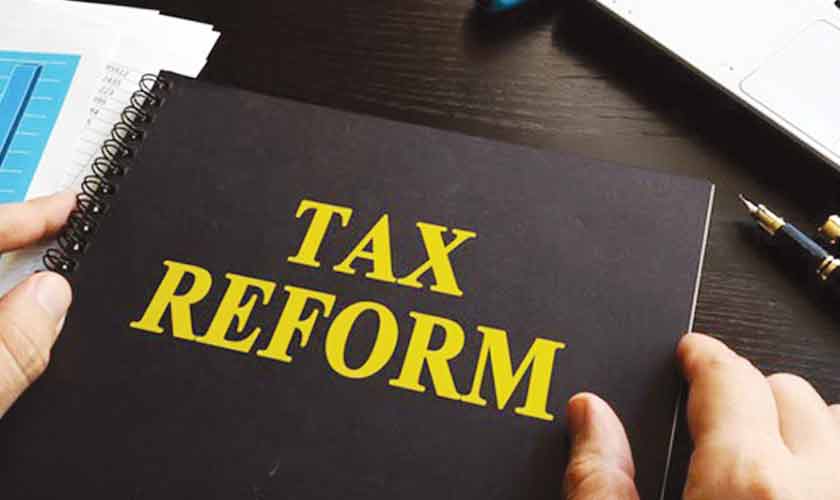While the longstanding economic crisis we are facing results from multiple structural issues that demand well-thought-out and research-based policies and their effective implementation, one significant issue is the growing fiscal deficit due to the huge gap between revenue receipts and expenditures.
This is one of the most important factors contributing to the growing debt, recurring current account deficit, low productivity, and falling investments. While I had pinpointed some measures to reduce government expenditures in an earlier piece published in these pages (‘Targeted solutions to control government spending, July 1, 2024) right after the budget, the revenue mobilisation side, especially tax collection, also needs immediate attention.
The government has set an ambitious tax target of nearly Rs13 trillion, 40 per cent higher, for FY2024-25. To achieve this target, the government has aimed for a whopping 48 per cent increase in direct taxes and 35 per cent in indirect taxes. For this, the government has withdrawn some tax concessions and revised the income tax rates upward. However, in the first quarter of the ongoing fiscal year, the FBR has collected Rs2556 billion, registering a shortfall of Rs96 billion which should ring alarm bells.
It is important to see what set of actions the tax authority and the government will roll out to address the low and stagnant tax-to-GDP ratio and achieve the tax revenue target of this year. Will they rely on conventional measures such as increasing tax rates and penalising honest taxpayers, or introduce non-traditional solutions that support business activities, generate employment, improve governance, broaden the base, and thus increase tax revenues?
Economists have long been studying tax-paying decisions by citizens through the Allingham & Sandmo model proposed in 1972. This model is based on the work of Nobel Laureate Gary Becker’s Economics of Crime work. According to this model, a person compares financial gains from the tax evasion with the financial cost to be paid in terms of penalties and punishment if the evasion is detected. The decision of how much to evade depends on this cost-benefit analysis. This framework emphasis on the effectiveness of tax audits and law-enforcement mechanisms as well as on the lower tax rates to help governments collect revenues.
If we look at Pakistan’s tax system through this lens, we see that on one hand, the tax rates for both direct and indirect taxes are high and increasing, whereas on the other hand, law enforcement is so weak that tax cases involving an amount of Rs4.23 trillion are pending in tribunals and courts, with little hope of resolution in the near future.
The capacity to detect evaders and initiate proceedings against them is even weaker. Both of these factors, among others, clearly contribute to the net benefit of evading taxes. The government needs to focus on these critical areas, as improvements here can boost revenue collection without further burdening the already tax-paying honest citizens and businesses.
There is, however, another framework to study tax-paying decisions which emphasises tax morale, the intrinsic motive to pay taxes. Tax morale encompasses broader economic, social, religious, and psychological factors that influence the decision to pay taxes and how much to pay. These factors include fairness in the tax system, transparency in the tax authority and government affairs, revenue spending preferences of policymakers, state-citizen relationships, and social norms.
The presence of concessions, exemptions, and preferential rates in the system — measured as tax expenditures — not only limits tax collection but also sends a negative message to other citizens who are charged the standard rate of tax. According to the latest FBR estimates, the government allowed tax expenditures worth over Rs3,672 billion, even after adjusting for concessions given due to trade agreements with other countries and those allowed to ambassadors and charitable organizations as per global standards. This questions the fairness of the system and deteriorates the trust of taxpayers in the system. As a result, voluntary tax compliance suffers.
Similarly, if citizens observe that their tax money is being spent to support the lavish lifestyle of the elite, they tend to withdraw their support in terms of voluntary tax payments. Unfortunately, the cost of government in Pakistan is very high, not because the affairs are managed by highly skilled and highly educated persons who need to be paid more, but because the government spends too much on providing residences in gated housing societies, vehicles, fleets of employees, free electricity, and many more perks to the high-ups at the expense of taxpayer money. This too contributes to lowering tax morale.
Likewise, tax morale is also impacted by how taxpayers are treated. The government initiated recognising high taxpayers in various categories, by honouring them, allowing them to use VIP lounges at airports, and inviting them to dinners hosted at the PM house in honour of various dignitaries. Slemrod et al (2022) show that the taxes paid by individuals at the borderline of this criteria showed a spike in the following years. This provides evidence for honouring taxpayers and suggests rolling out this program at provincial and district levels as well.
Another important area that needs immediate attention is tax administration. The tax administration in Pakistan is characterised by inefficiencies, lack of transparency and accountability, and corruption. The tax authority needs to be reformed to make it more efficient and effective. This can be done by introducing modern technology and automation in the tax collection process, improving the capacity of tax officials through training and development, and ensuring transparency and accountability in the tax administration.
The advantages of the tax morale framework are that it is deeply rooted in behavioural research based on social norms and individual traits. It strengthens the state-citizen relationship and helps boost tax revenue while supporting economic growth. It is therefore highly recommended to consider these aspects to broaden the tax base, along with end-to-end digitization and simplifying the system to reduce the sludge.
Addressing the issues in the tax system requires a comprehensive approach that includes both short-term and long-term measures. The government needs to focus on improving tax administration, broadening the tax base, ensuring that the tax system is fair and equitable, and also on building a healthy and trustworthy relationship with the citizens. Only then can we hope to achieve sustainable economic growth and development.
The writer is an assistant professor at FAST School of Management, NUCES Islamabad. He is also a RASTA fellow and Research Lead at the Policy Research Institute for South Asia (PRISA).
“This article was originally published on The News and has been reproduced with permission”



